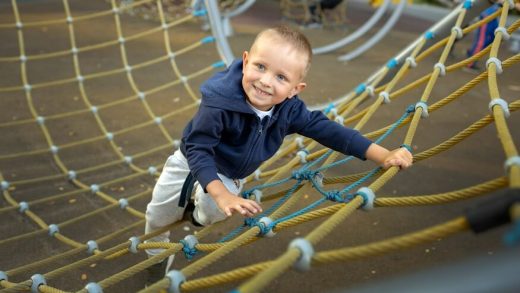There is no such bond as a parent and child in all the complex human relationships. Conception to growing up, one’s relationship with their child is a never-failing sign of love. This is where a person builds emotional intelligence. It shapes kids’ social and thinking skills. You should see it not as a duty but as a way to find meaning in relationships. Becoming a parent is a special role. It involves caring, guiding, and cherishing kids. By exploring how to build a good parent-child relationship, you can help your children become resilient and kind-hearted.
Understanding Parent-child Relationships
A parent-child relationship is a mix of complex feelings and shared events. Every action contributes to changing the nature of this link, right from warm cuddles in a tough time. These associations give trust, love, and survival tactics in the outside world. You should know how delicate these bonds are. Thus, you establish connections based on sympathy, dialogue, and mutual respect, ensuring emotional health for our children throughout their lives.
Importance of Parent-child Relationships
The importance of parents can never be denied. When parents stay together and share a mature bond themselves, children get influenced. Healthy relationships with parents are crucial for a child’s growth in all areas. These connections offer emotional safety, intellectual challenge, and social orientation—all that’s required to survive in the world.
Positive parent-child interactions promote cognitive development, thus creating curiosity and critical thinking skills among kids. Let’s delve deeper into the importance of parent-child relationships.
- Emotional Security:
- Cognitive Development:
- Social Abilities:
- Emotional Control:
- Life Long Bonds:
Children’s emotional security is the relationship between parents and children. When a child receives nurturing care, they know that they matter to you a lot! Such feelings provide them with the confidence to go out into the world. While also knowing that they can always find solace whenever they return.
Strong parent-child bonds are key. They talk and encourage exploration. Parents boost their child’s thinking. This also improves problem-solving. Thus, children do better in school and learn for life.
The way parents bring up their children affects their social capabilities. There are many things a parent can do to help their child fit into society. One of them is acting as an example by showing how to be kind, empathetic, and cooperative. Another thing is that they should enable them to make friends by connecting with them on a deeper level. This ensures that the child acquires the necessary communication skills. This ability helps resolve conflicts or collaborate with others when working together.
Children learn about emotions from close relationships, especially with parents. Parents show them how to manage feelings by example. They care and tell when children are happy or sad, teaching expressions. Moreover, parents protect kids from harm, building their courage. Allowing some exposure helps kids develop resilience. This prepares them to face life’s challenges.
The key part of being a parent is building a lasting bond. Children and parents base this bond on love, trust, and respect. Childhood relationships stay with us, affecting our adult friendships. Fostering a healthy parent-child relationship leads to immediate happiness for children. It also ensures lifelong care and companionship.
Tips to Strengthen Parent-Child Relationships
Building a strong bond with your children is life’s most fulfilling task. So, let’s explore tips for positive parenting. These tips foster lasting relationships. Also, they offer practical advice on building strong bonds.
- Create Quality Time:
- Active Listening:
- Setting Clear Boundaries:
- Promote Self-reliance:
- Lead Through Examples:
- Nurture Empathy:
Pick a quiet time for deep talks with your child. Find a place free from disturbances. You can read together, play games, or explore outside. These moments make lasting memories, strengthening your bond.
When children talk, it is important to give them full attention by listening. Recognise their emotions and points of view, showing compassion and understanding. This builds trust when we listen thus making children open up more to us.
To provide structure and guidance for a kid, one has to establish firm yet loving limits. What matters most is the firm enforcement. At the same, stressing respectfulness towards others and personal responsibility. Such boundaries will make them feel safe knowing where their limits lie. Thus, aiding in behaviour management while growing up.
Parents should let children make decisions and select options appropriate for their age. This helps foster your child’s autonomy and independence. Encourage them while they tackle new problems to build up confidence in their resourcefulness. This also develops a sense of personal agency and self-esteem.
Be aware that kids watch what we do more than listen to what we say. Show acts such as kindness, patience, or resilience in life. This will teach children good morals through practical examples. Leading with examples helps to reinforce values while giving important lessons about life.
Show your child the significance of empathy and compassion by modelling caring behaviour while also urging them to show kindness to others. Guide them in identifying and affirming their feelings, thus fostering emotional intelligence. Building awareness like this helps families connect better with each other, allowing them to share different perspectives of life that might have caused misunderstandings.
Developing a powerful parent-child relationship is a hard process. It’s filled with happiness, difficulties, and development. You can establish such a relationship by realising the importance of this attachment. The positive parenting tips mentioned-above will help you make your child emotionally healthier. Take action now to create positive relationships between parents and kids. Enrol your kids at Kangaroo Kids International Preschool to foster their overall growth. To learn more about our curriculum, contact us today!









